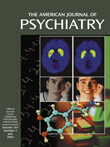To the Editor: In his letter, my distinguished colleague Dr. Carroll states that there can be “no general conclusion about protective antidepressant drug effects on the hippocampus in major depression.” We agree but note that we did not state such a conclusion; we argued simply that our clinical data are consistent with preclinical studies showing protective effects of antidepressants in the hippocampus. In addition, a recent study
(1) showed increases in hippocampal volume after 9–12 months of treatment with paroxetine in patients with posttraumatic stress disorder and provides further support for the possibility that antidepressants are protective of hippocampal volume in anxiety disorders and depression.
Dr. Carroll questions the preclinical work that we cited, stating that the authors have “misled readers” by citing a study of social stress in tree shrews by Czeh et al. (2001), which “examined no standard antidepressant agents. Tianeptine is not an accepted antidepressant agent.” This is simply incorrect. Tianeptine is a well-accepted antidepressant commonly used in Europe with demonstrated efficacy in both placebo-controlled and active comparator studies
(2,
3). Fluoxetine also has been shown to have neuroprotective effects; with the inescapable shock paradigm, fluoxetine prevented stress-induced cell decreases in the hippocampus
(4). Whether tianeptine and fluoxetine have different effects on hippocampal physiology and behavioral pharmacology does not preclude both from protecting against stress-induced cell loss.
Dr. Carroll questions our data analysis, stating that we should have removed four data points in our regression analysis. It is troublesome to label 10% of the study group as “deviant.” Moreover, by visual inspection, why the four points below the fitted line, rather than the three above, with the longest days of untreated depression were considered “deviant” by Dr. Carroll is not clear. We agree that 38 is a small group size. However, we point out that this size is large enough to have 80% power to detect a correlation coefficient of 0.42 with a two-tailed 5% significance test. The product moment correlation coefficient is relatively robust to deviations from normal distributions but sensitive to nonlinear association and unequal variances around the line
(5), neither of which is evident here. Spearman’s rank correlation coefficient, which is not affected by outliers, again demonstrates the robustness of our findings (r
s=–0.48, df=36, p=0.003). Furthermore, it is not appropriate to arbitrarily dichotomize outcomes for the purposes of analysis. It is well known that there is a consequent loss of power
(6). Thus, Dr. Carroll’s post hoc analysis of our chi-square test data and the finding that it was not significant may reflect his use of an inadequately powered test rather than suggesting a change in our conclusion.
Finally, we agree that we could have said that “lower” hippocampal volumes were associated with duration of untreated depression, but the conclusion would still have been that antidepressants may have a neuroprotective effect. To fully establish this effect would require not only prospective studies but randomized clinical trials with a long follow-up. The findings here provide testable hypotheses as well as pilot information to guide the design of such studies.

